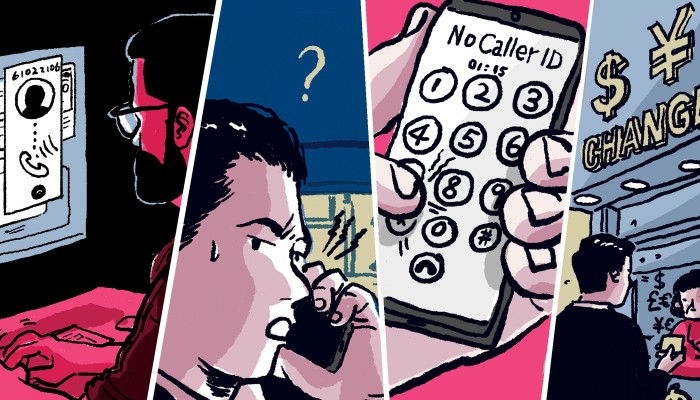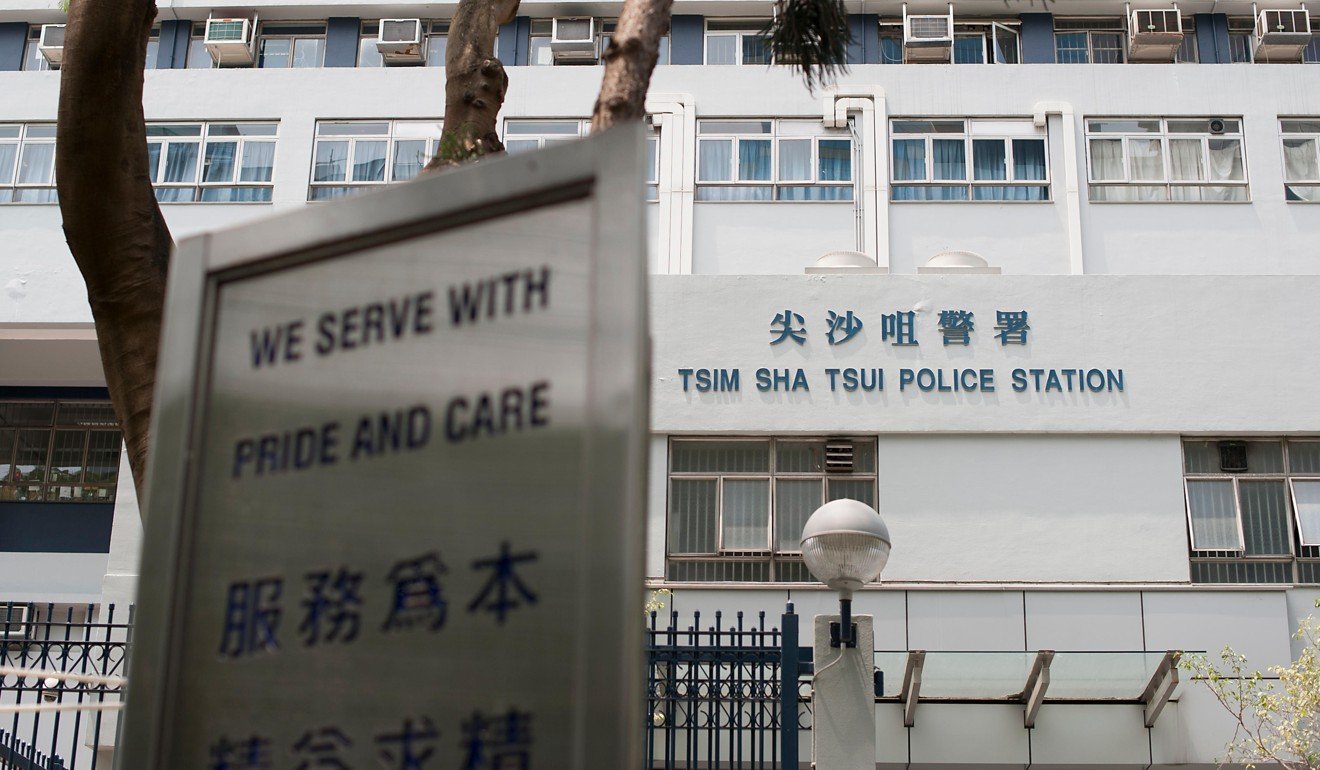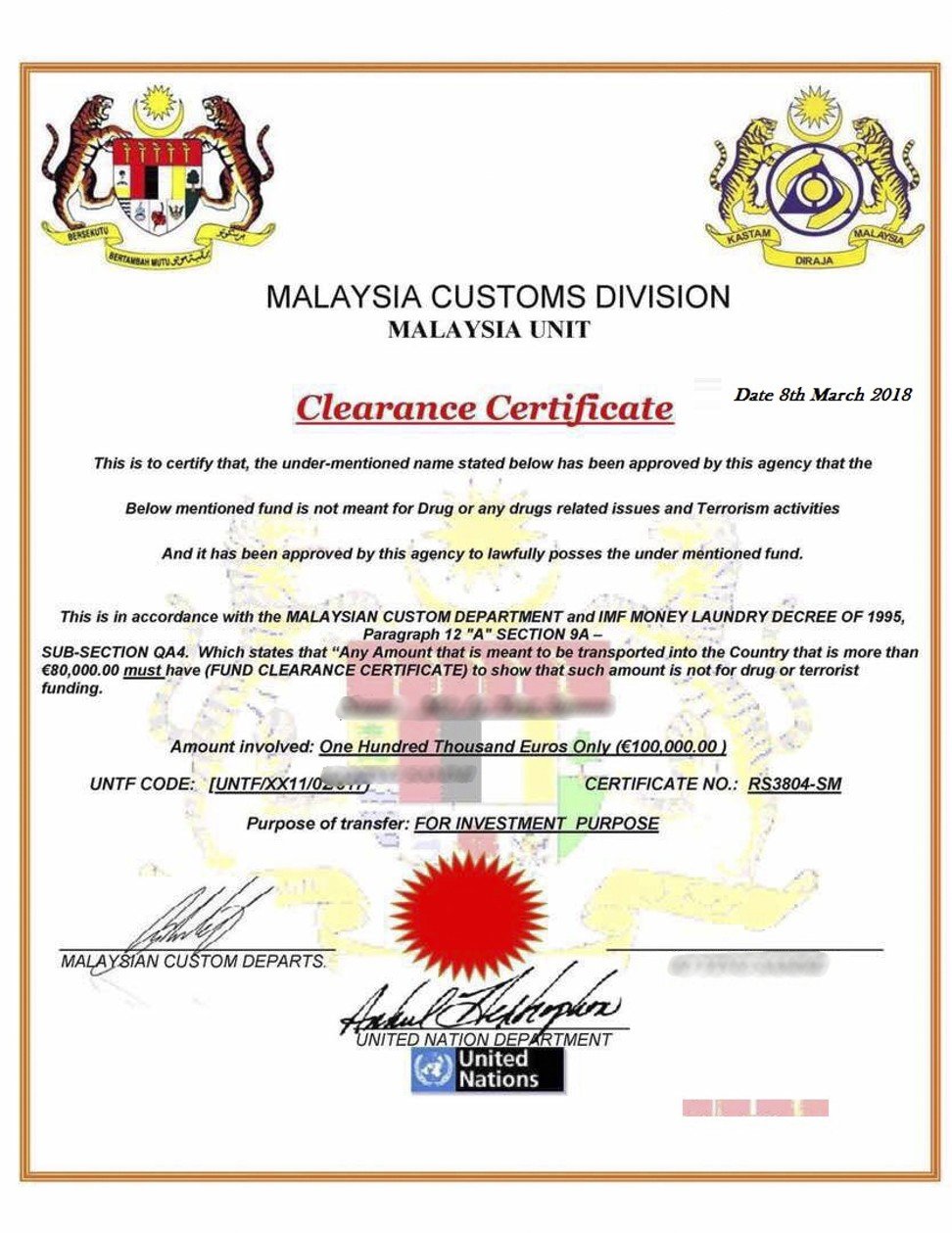
Leo Ho Cheuk-yin’s nightmare began in November 2018 when he received a phone call from someone claiming to represent the Hong Kong Immigration Department, telling him that exit restrictions had been placed upon him.
By the time it ended he had been swindled out of nearly HK$6 million (US$765,000) by con men posing as law enforcement officers – another victim of a spate of phone scams in Hong Kong.
The 24-year-old musician, also known as CY Leo, is a harmonica player who has twice been named solo world champion at the World Harmonica Festival, in 2009 and 2013, and receives regular coverage in the Hong Kong media.
He was shocked to learn that exit restrictions had been imposed upon him, as he was booked to perform overseas two weeks later and did not want the concert put in jeopardy.

He followed the callers’ instructions and pressed a number, which transferred him to a man claiming to be an Immigration Department officer. Speaking in Mandarin, as opposed to the local Cantonese dialect, he told Ho that he was under investigation. A bank account he had opened in Shanghai, and a person whom he had helped apply for a travel permit, were suspected of being tied to a money laundering case.
Ho had neither opened the bank account, nor applied for anyone’s travel permit, so he promptly denied any involvement.
Nevertheless, he was put through to an “inspector” from Shanghai’s Ministry of Public Security. The inspector threatened Ho with arrest and demanded he prove his innocence. The police were probing an international syndicate, the man said, warning Ho to keep quiet lest he tip off other members. Anyone he told of the incident would also be considered an accomplice. Ho, unable to fathom what was going on, was flummoxed.
They told me stories of other victims, and how they were suffering, to win my sympathy. They also shared how much pressure they were under to solve the case, and how they hadn’t slept for days working on the investigation – Scam victim Leo Ho
“In the rush to defend myself I unwittingly gave away my personal details, sharing about my job and my schedule, as an alibi,” he says.
The phone scam, in which culprits pose as Chinese officials and direct victims to a fake government website, was first reported in Hong Kong in 2014. The number of such deception cases spiked in 2015, when 729 victims reported being swindled out of a total of HK$85.4 million in July alone. There was another surge in the second half of 2018, with 138 cases reported between July and October. Most of the victims were students; the youngest was only 14 years old.
In Ho’s case, a link was sent to him by the bogus inspector, which led to what appeared to be the agency’s website. Entering a case number he was given, he downloaded a page with legal documents including a stamped and signed warrant listing charges against him, and his personal information.
Ho panicked, and was put through to yet another fake law-enforcement agent.
“This one played the good cop, reassuring me that he believed [in my innocence] and would do his best to help me,” Ho says. He offered to postpone Ho’s arrest on condition that he report in by phone every hour. He would also have to deposit HK$300,000 in a Chinese bank account through currency exchange shops. The fraudster even helped him rehearse answers to questions that suspicious bank tellers might ask when a customer withdraws such a large sum of money.
Appealing to his sense of justice, the “good cop” told him that by helping the investigation, he would be assisting many other victims like himself who had also been falsely implicated in the money laundering scheme.
“They told me stories of other victims, and how they were suffering, to win my sympathy. They also shared how much pressure they were under to solve the case, and how they hadn’t slept for days working on the investigation,” Ho says.
I visited almost 60 currency exchange stores, making up to 30 transactions in those two weeks – Ho describes how he paid off the scammers
Over the next two weeks, the inspectors kept him informed of the investigation’s progress. New evidence was uncovered, Ho was told, and the inspectors asked him to fork out more money.
Utterly bamboozled by what he had become embroiled in, Ho met each demand for money, making multiple payments to the fraudsters. He withdrew all his savings, and borrowed money from relatives and friends to come up with the cash. He was told to make each deposit in a different place, presumably to avoid alerting the authorities.
“I visited almost 60 currency exchange stores, making up to 30 transactions in those two weeks,” Ho says. It was only when he confided in his mother about the ordeal that he understood he was being duped; the pair contacted the Hong Kong police immediately.

The news that Ho had been duped out of HK$5.9 million broke in December. Fearing shame and embarrassment, few victims come forward to speak publicly about being scammed, but Ho now wants to tell his story.
By opening up about the scammers’ manipulative tactics, he hopes to show others how easy it can be to fall for their schemes, how to stay vigilant, and not to lay the blame on victims. Despite losing a fortune, Ho appears remarkably optimistic and relieved, which he admits is a far cry from his state of mind two months ago. He recalls how the scammers pushed him to the brink of a mental breakdown, as he awoke every day consumed by desperation.
“All I could think about was how I could find more money [to meet their demands],” he says.
The Immigration Department issued a statement in November, reminding the public to be vigilant and saying it “will not transfer calls to other non-local authorities and will not ask the call recipient to provide information such as bank account numbers and passwords”. Con artists are able to use technology to falsify their caller ID so incoming calls display hotline numbers operated by the Immigration Department. The fraudsters also commonly pose as representatives of delivery and courier services.
Another victim, a clerk in her mid-30s surnamed Chan, who does not want to reveal her full name, was contacted on WeChat in February 2018 by a woman calling herself Tess William. After a week of chatting, William, who claimed to work for Apple, insisted on mailing Chan free products she received from the company. Chan gave her address and soon received a call from a supposed shipping company. She was asked to sign a document from Malaysia’s customs division, verifying that the package belonged to her.

After doing so the company asked her to pay a tax on the goods and transfer the money through Western Union.
Things took a turn when the shipping company employee informed her that Hong Kong customs had found cash in the package, and demanded she pay more tax to recover it. The package could not be sent back, Chan was told. William claimed she had sent the money in the package to buy a flat, and pleaded with Chan for help. Overwhelmed by the whole affair, Chan ended up emptying her bank account, transferring a total of HK$70,000.
“I felt cornered because I already had no money, and I realised something was wrong,” Chan says. She confided in a colleague, who took her to a police station. Despite making a statement in March last year and providing police with records of all the transactions, Chan has still not heard back and feels frustrated with the investigation.
“I didn’t expect to get my money back, but I think the police should at least give me an update,” she says.
The impostors demanding a huge sum of money really upset me, but it was seeing the negative response that made me hit rock bottom – Ho tells how humiliated he was after the scam was revealed
Ho is also disappointed with the police’s handling of his case. Despite being told his identity would be withheld, it was leaked to the media and made headlines in local newspapers before he even finished making his statement, he maintains.
Thanks to the exorbitant sum involved, the news became the talk of the city and Ho was made a laughing stock, bullied online and shamed as a victim. Many commented on social media that he was blackmailed because he was guilty, or that he deserved his misfortune.
“The impostors demanding a huge sum of money really upset me, but it was seeing the negative response that made me hit rock bottom,” Ho says. “I felt like I couldn’t defend myself. It was my word against theirs.”
The trauma has left mental scars; Ho feels nervous every time he walks past a currency exchange shop and has lost confidence in law-enforcement agencies. Although the incident has not affected his musical career, he has had to postpone plans to study for a master’s degree due to his financial loss.
Ho is aware that speaking out may expose him to further ridicule, but hopes that by sharing his experience it will be a warning to others not to fall into the same trap.
“I wouldn’t wish it on anyone,” he says.







